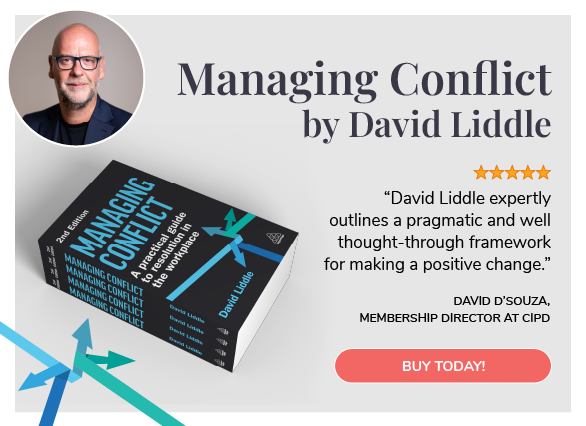
Share article:
Tags:
A study conducted by The Myers-Briggs Company in August 2022 revealed that the amount of time spent on resolving workplace conflict has doubled since 2008. Alarmingly, on average, respondents spent over 4 hours per week handling employee disputes. This of course amounts to a significant cost in terms of man hours and decreased productivity!
Worryingly, this does not take into account costs accrued as a result of employee sickness/absence, grievance/disciplinary procedures, resignations and other related processes that are associated with such disputes.
Is there a solution?
It’s within this context that mediation is presented as an alternative, friendlier and more people-centred approach to resolving workplace disputes. Allowing involved parties to have an opportunity to express themselves, have an open and honest conversation, and be heard, mediation can help to mend relationships and protect employee wellbeing.
In turn, by offering a less formal, rigid and time-consuming approach to conflict resolution, mediation can save organisations a significant amount of time and money, while crafting a happier, people-centred workplace culture.
Harriette Wolff, TCM’s Director of Resolution and Investigation Services, recently provided her insights and best practice, alongside experienced mediator and TCM Transformation Consultant, Pip Brown in our Mediation Eye Opener webinar.
5 Top tips for mediation
Some top tips for aspiring mediators which were shared during the session include:
- Listen Actively – Create a safe space. Open questions. Acknowledge, affirm, appreciate.
- Be empathetic – What is going on for them right now? Walk in their shoes.
- Don’t judge, evaluate, assume or blame – Support the person to tell you their story. Suspend judgment.
- Depersonalise the situation – Encourage the speaker to describe their 1) observations, 2) their feelings and 3) their needs. You do the same.
- Focus on interests and needs – Negotiate and make requests of each other which are mutually beneficial.
To catch up on the full session delivered by Harriette and Pip, please click here. Alternatively, if you would like to find out more about how TCM could support your organisation to integrate mediation into your conflict resolution process click here.








